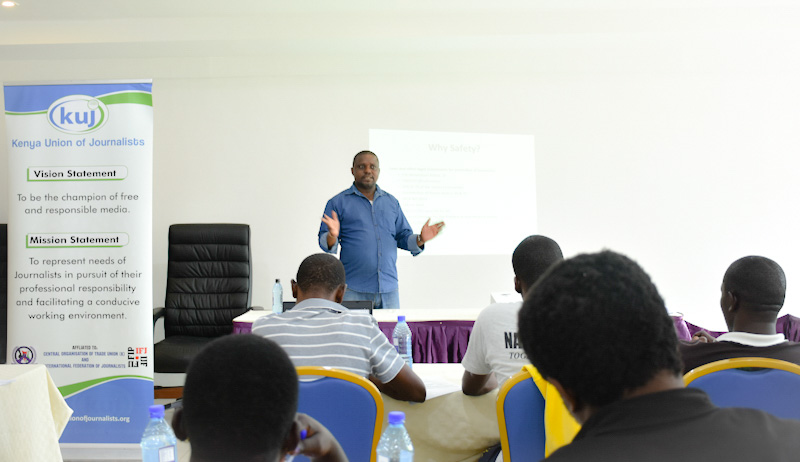This content has been archived. It may no longer be relevant
- Press freedom remains very fragile in sub-Saharan Africa.
The 2020 report on press freedom prepared by Reporters Without Borders (RSF) shows a ‘steady decline in media freedom’ ranking 103 out of 180 in press freedom with an overall score of 33.72 percent, a drop of three points compared to its 100 position in 2019.
In 2019, it was a drop of four spots.
“Kenya has seen a slow erosion of media freedom in recent years. The political situation and security concerns have been used since 2016 as grounds for restricting the freedom to inform,” said
The report signals a ‘decisive for the future of journalism’ in the wake of the Coronavirus pandemic which “highlights and amplifies the multiple crises that threaten the right to free, independent, pluralistic and reliable information”.
“The next ten years are likely to be “a decisive decade” for press freedom due to crises affect the future of journalism: geopolitical (aggressiveness of authoritarian models), technological (lack of democratic guarantees), democratic (polarization, repressive policies), confidence (suspicion, even hatred towards the news media) and economic crisis ( impoverishment of quality journalism),” reads part of the report.
Kenya for instance, journalists face ‘censored on the internet, even attacked online’. The report highlights #NationMediaGarbage that was used to troll Nation Media Group.
“…because of the information chaos on social networks, where reliable information is often drowned in a mass of content mixing propaganda, conspiracy theories, and disinformation,” says the report.
| EAST AFRICA | RANKING | SCORE |
| Kenya | 103 | 33,72 |
| Uganda | 125 | 40,95 |
| Tanzania | 124 | 40,25 |
| South Sudan | 138 | 44,49 |
| Rwanda | 155 | 50,34 |
| Burundi | 160 | 55,33 |
| Somalia | 163 | 55,45 |
UN High Commissioner for Human Rights Michelle Bachelet in a recent statement said she was alarmed by restrictive measures imposed by several States against the independent media, as well as the arrest and intimidation of journalists.
“A free media is always essential, but we have never depended on it more than we do during this pandemic, when so many people are isolated and fearing for their health and livelihoods. Credible, accurate reporting is a lifeline for all of us,” said Bachelet.
The Media Council of Kenya and the Kenya Union of Journalists, co-convenors of media industry stakeholders under the auspices of Kenya Media Sector Working Group (KMSWG)in their recent submissions to the Building Bridges Initiative Steering Committee, noted that in spite of the robust provisions of the Constitution, the practice of journalism in Kenya continues to face numerous challenges.
Some of the challenges are attributed to the weaknesses in the legal and regulatory framework which ‘impinge on the freedom of expression and media freedom’.
KMSWG also observes that the Safety and protection of journalists remains a constant issue of concern in the country.
“Incidents in the recent past have seen so many journalists assaulted while at work, face death threats and intimidation on account of their professional duty of collecting and disseminating information.”




